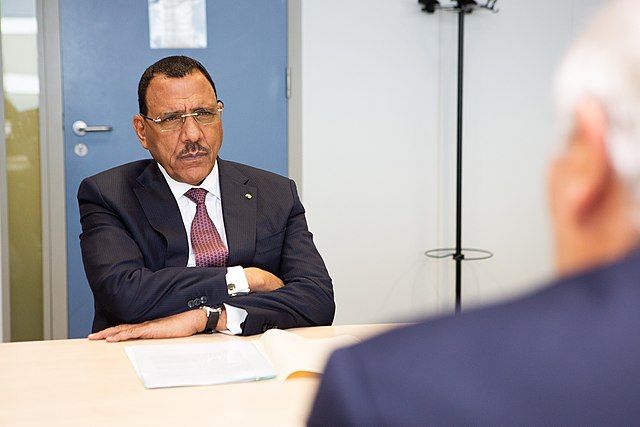
By Stacy M. Brown, NNPA Newswire Senior National Correspondent
On Wednesday, July 26, a group of presidential guards held Niger President Mohamed Bazoum captive inside the presidential palace in the capital city of Niamey.
The incident has been widely condemned by neighboring countries and the international community, with the United Nations, the United States, and the European Union denouncing any attempt to seize power through illegitimate means.
West Africa’s primary regional and economic bloc, ECOWAS, called for the immediate release of President Bazoum.
Meanwhile, the African Union has urged the soldiers involved in the attempted coup to return to their barracks without delay.
Patrice Talon, President of neighboring Benin, expressed his intention to mediate the crisis after discussing it with Nigeria’s President and ECOWAS leader, Bola Tinubu.
“I believe that all means will be used, if necessary, to restore constitutional order in Niger, but the ideal would be for everything to be done in peace and harmony,” Talon asserted during a press conference in Abuja.
The Nigerian presidency released a statement affirming that the national army was prepared to take decisive action against the guards if they persisted in their unlawful acts.
Land-locked Niger, a crucial ally for Western powers combating insurgency, has been facing increasing tension from the new juntas controlling Mali and Burkina Faso.
The country plays a vital role in the European Union’s efforts to address irregular migration from sub-Saharan Africa.
“The EU condemns any attempt to destabilize democracy and threaten the stability of Niger,” European Union foreign policy chief Josep Borrell said in a statement.
Similarly, U.S. National Security Advisor, Jake Sullivan, expressed deep concern about the situation and unequivocally condemned any attempt to detain or subvert the democratically elected government led by President Bazoum.
“We specifically urge elements of the presidential guard to release President Bazoum from detention and refrain from violence,” Sullivan said.
“We welcome the strong statements and steps taken by the Economic Community of West African States and the African Union to defend Niger’s democracy. We are closely monitoring the situation to ensure the safety of our citizens.”
Highlighting the significance of the relationship between the United States and Niger, Sullivan reiterated their shared values of democracy and human rights.
America reportedly has spent more than $500 million since 2012 to help bolster Niger’s security.
Sullivan emphasized that the cooperation between the two nations aimed at advancing regional security and prosperity hinged upon Niger’s unwavering commitment to democratic standards.
The attempted coup has shaken the stability of Niger and sparked widespread concern about the region’s delicate political landscape.

